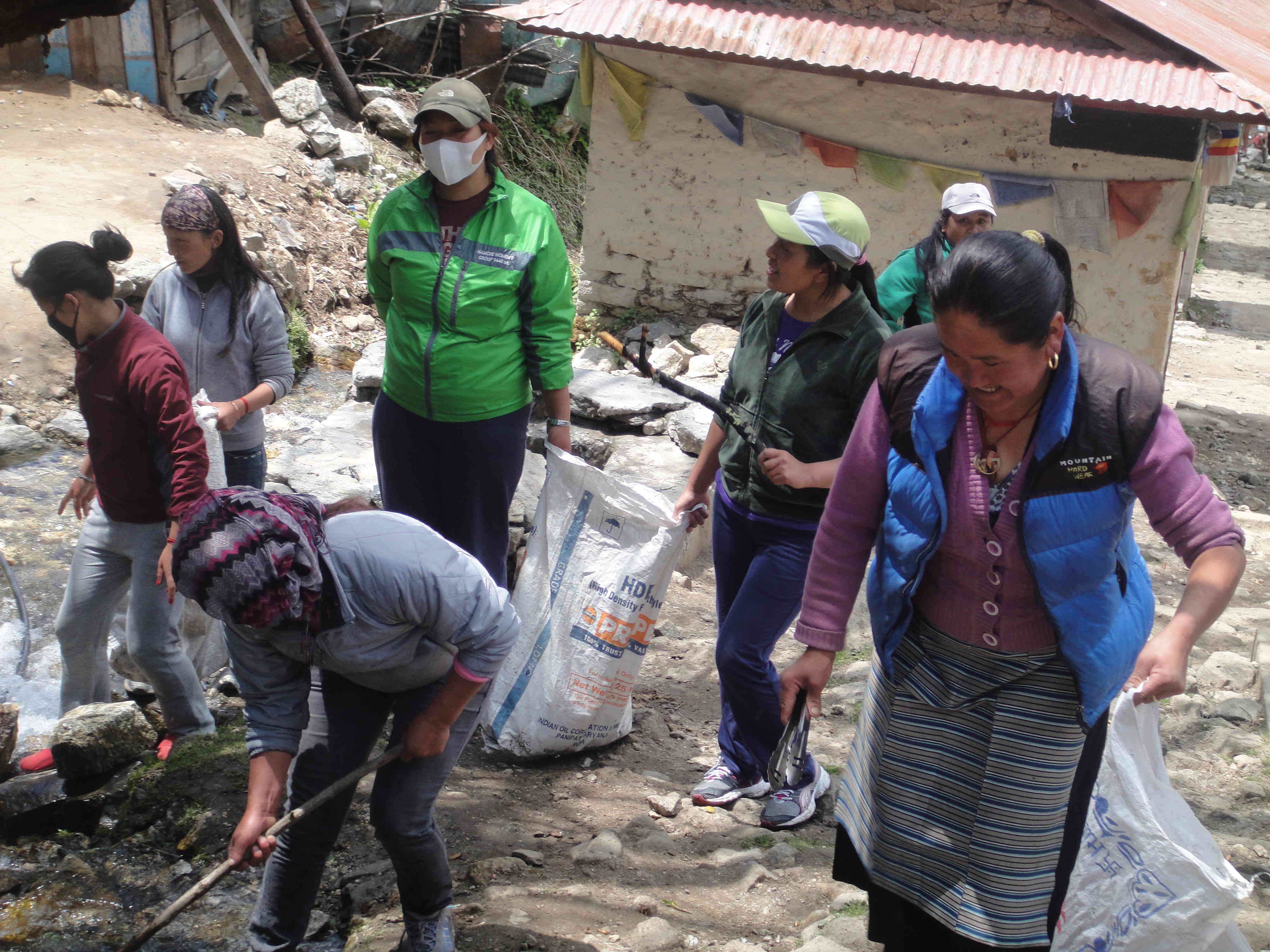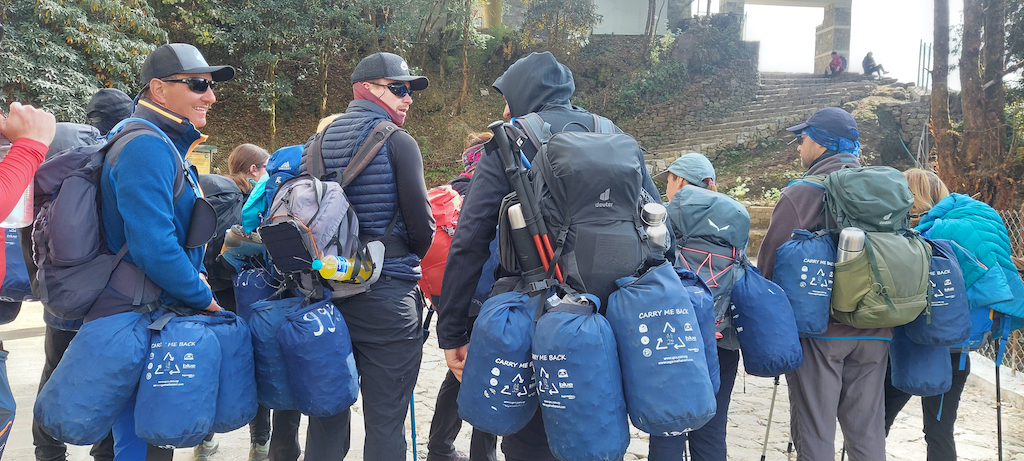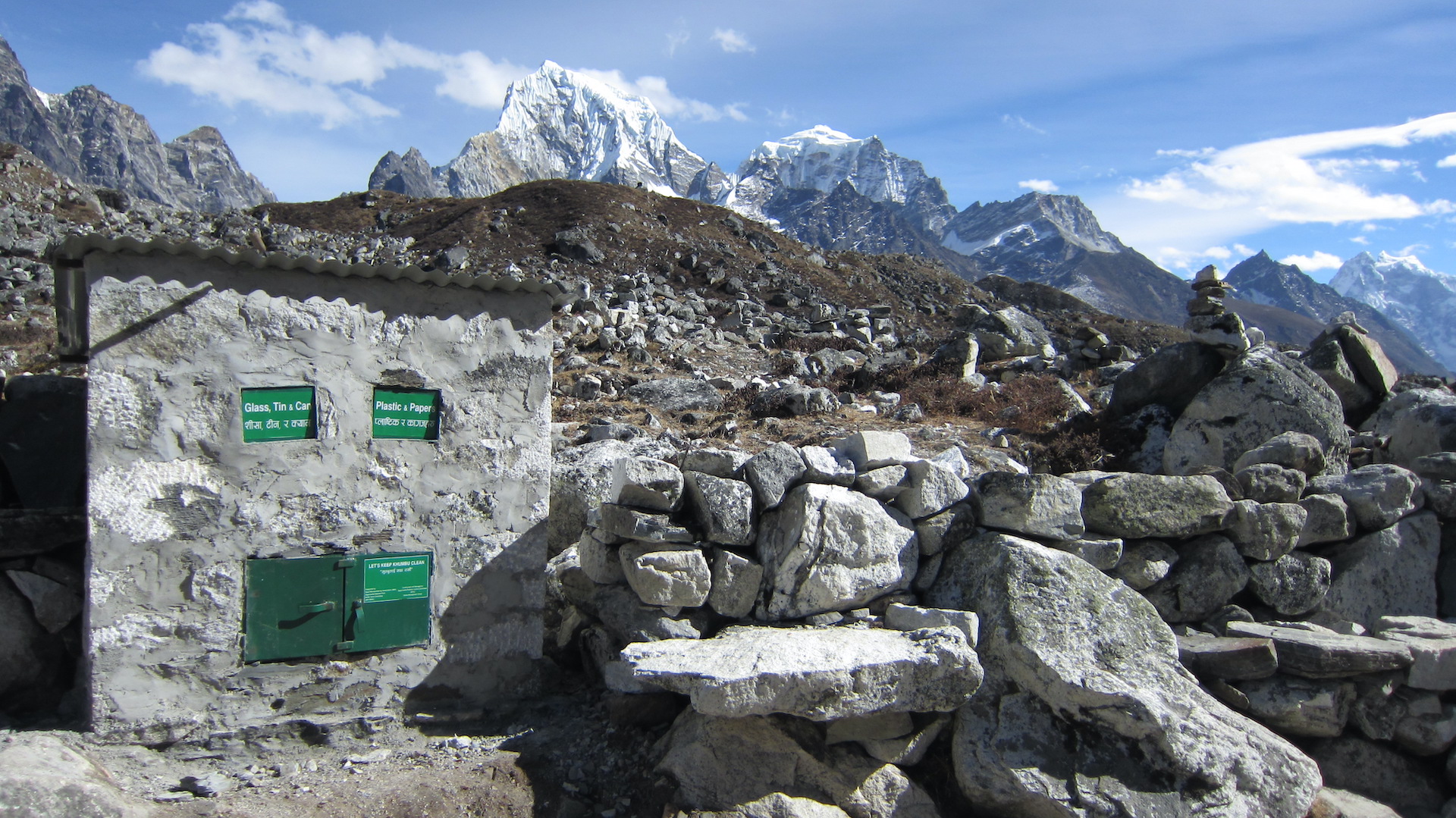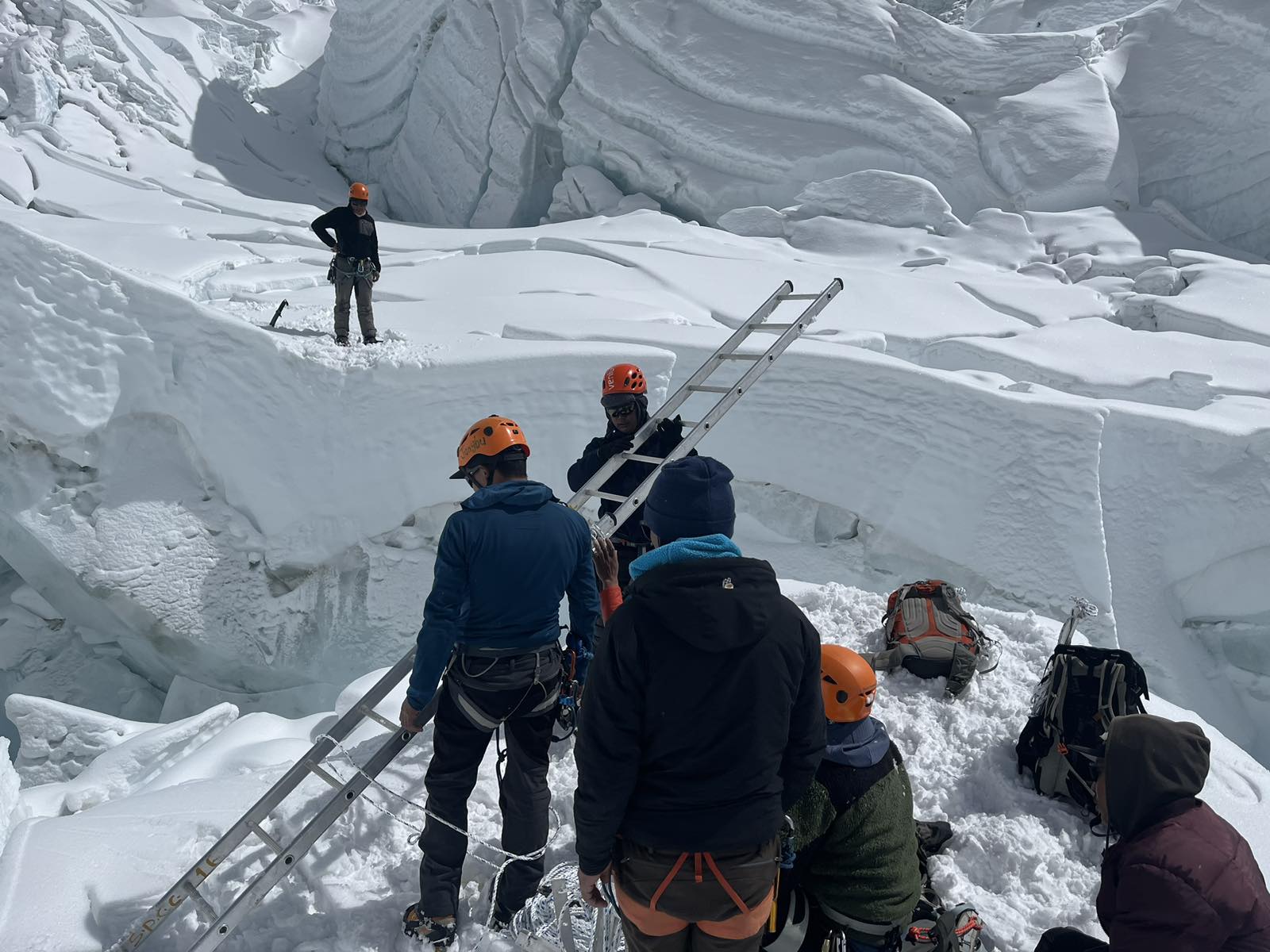
Specific Engagement: SPCC constructs, installs, and manages a network of waste bins across the Everest region, particularly along popular trekking routes like those leading to Everest Base Camp.
Details: Waste bins are strategically placed in high-traffic areas, rest stops, trekking lodges, and villages, ensuring that trekkers and climbers have access to proper waste disposal facilities. SPCC also ensures that these bins are weather-resistant and can handle waste segregation (e.g., separating recyclables from non-recyclables) to facilitate responsible waste management.
Impact: This infrastructure reduces litter along trekking routes and helps keep the environment clean by encouraging trekkers and locals to dispose of waste responsibly.

The “Carry Me Back” (CMB) project was initiated by Sagarmatha Pollution Control Committee (SPCC) and Sagarmatha Next in partnership with Sagarmatha National Park, Sagarmatha National Park Buffer Zone Management Committee, Khumbu Pasang Lhamu Rural Municipality, Tara Air and Blue Waste to Value. The main aim of the program is to transport semi-processed recyclable wastes, such as aluminum cans, PET bottles, tins etc. from Namche to Kathmandu for recycling with voluntary support from trekkers and guides. The CMB project was successfully tested during the trekking season in Autumn 2019. The CMB project was halted in 2020 and 2021 due to COVID-19 pandemic and restarted in Spring 2022.
The project was supported by Dell Reconnect, Bally Peak Outlook Foundation and Kiehl's. Over 11 tons of recyclable garbage was transported from Namche to Lukla through the CMB program with support of over 5,800 amazing volunteers.

With the aim of building a more effective waste collection system along the Region’s trekking trails, SPCC has started to build permanent garbage bins along the trails since 2013. Each bin has segregation chambers to collect trash by categories so that these wastes will be properly treated and managed accordingly. SPCC built a total of 119 garbage bins and has been overseeing the maintenance and management of all garbage bins. A total of 109 garbage bins were built at various resting points along the trekking trails and 10 garbage bins were built at nine schools located within Khumbu Region. SPCC’s field staff and local partners continuously monitor littering of trash along the trekking trails and manage all garbage bins located along various trekking trails.

Since 2000 Sagarmatha Pollution Control Committee (SPCC) and Nepal Mountaineering Association (NMA) have been working together on the ‘Illegal Climbing Control Project’ in the Khumbu Region. SPCC is the authorized local institution responsible for controlling illegal climbers and monitoring garbage in 12 peaks (Island peak, Lobuche peak, Kusum Kangru, Kongde, Cholatse, Kyajo Ri, Nirekha, Ombigacho, ABI, Lobuche West, Khongmatse and Mera) of Khumbu Region registered under NMA.
SPCC regularly checks climbing permits of climbers at the base camps of NMA registered peaks. All climbers are required to keep their permit with them during their climbing period. If any of the climbers are found to be involved in illegal climbing, they have to face prosecution as per the laws governing regulations of Nepal.
SPCC also inspects the climbing route of Island peak at the beginning of every climbing season, and install ladders if wide crevasses appear along the route. In this regard, our scope of work is to inspect crevasses along the route and install ladders when required over wide crevasses.

Specific Engagement: SPCC constructs, installs, and manages a network of waste bins across the Everest region, particularly along popular trekking routes like those leading to Everest Base Camp.
Details: Waste bins are strategically placed in high-traffic areas, rest stops, trekking lodges, and villages, ensuring that trekkers and climbers have access to proper waste disposal facilities. SPCC also ensures that these bins are weather-resistant and can handle waste segregation (e.g., separating recyclables from non-recyclables) to facilitate responsible waste management.
Impact: This infrastructure reduces litter along trekking routes and helps keep the environment clean by encouraging trekkers and locals to dispose of waste responsibly.